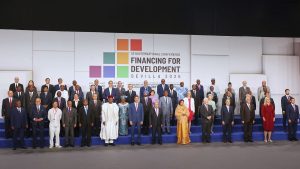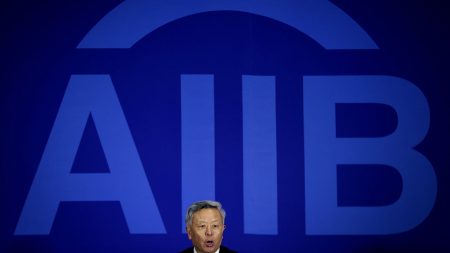For years, the United States has been a prominent destination for Chinese goods, with a significant portion of imports flowing from China into American consumer markets. However, escalating tensions between Beijing and Washington have led many Chinese exporters to reconsider their reliance on the U.S. as a key market. As a case in point, Du Jing and her husband own Yiwu Xianchuang Handicraft Manufacturing in Yiwu, China, which is notable for housing the world’s largest wholesale market. Their company, like many others in Yiwu, produces various small commodities—ranging from fridge magnets to portable toolboxes—destined for consumers globally, including those in the U.S. Yet the increasing strain in U.S.-China relations, exacerbated by impending tariff hikes and trade restrictions under President-elect Donald Trump, is influencing these exporters to diversify and seek new markets.
Chinese exporters, such as those operating in Yiwu, have reported declining sales in the U.S. market due to a combination of factors, including trade hostilities and American customers’ price sensitivity. Du Jing shares her insights from her booth within the Yiwu market, revealing that sales have significantly reduced, which she attributes to the financial situations affecting U.S. consumers. Since 2019, American customers have become reluctant to purchase products priced over certain thresholds—25 cents in her experience—forcing Chinese suppliers to reconsider their pricing strategies. Concurrently, regions such as the Middle East have emerged as attractive alternatives, presenting opportunities for higher prices and expanding orders. This shift highlights the evolving landscape for Chinese exporters as they adapt to changing consumer behaviors and market demands.
The impact of U.S. tariffs on Chinese goods has been profound. Data reveals that the share of Chinese exports to the U.S. dropped from 19% in 2018 to 15% in the following year, despite an overall increase in China’s exports. Several exporters in Yiwu, such as Chen Yong, echo concerns about their decreasing business with U.S. and European markets, while simultaneously noting significant growth with clients from Southeast Asia, Africa, South America, and Russia. For many businesses, the prospect of steep tariffs—rumored to potentially reach as high as 60%—could drastically alter their operational viability. Chen comments on the necessity of either raising prices or absorbing lower profit margins, both of which place significant pressure on the exporters who are already feeling the pinch from American customers’ hesitance to pay higher prices.
Trump’s proposals for tariff increases serve as a critical focal point for Chinese exporters assessing their future in the U.S. market. With discussions indicating a potential 10% tariff initially and idea of a larger 25% tax on products from neighboring Canada and Mexico, uncertainty looms large. Experts like Tu Xinquan, director of the China Institute for WTO Studies, predict that intense tariffs could decimate trade opportunities between China and the U.S., particularly for medium and small enterprises. These exports may struggle to sustain operations amidst unprecedented tariff challenges, as larger corporations would likely navigate the situation with more resilience.
As the business environment continues to fluctuate due to political tensions, many Chinese exporters are exploring alternative markets to mitigate risks associated with dependency on the U.S. market. The trend indicates a broader strategy of diversification, targeting regions that show promise in both demand and pricing flexibility. Notably, the Middle East and various developing markets have risen in desirability, providing new avenues for Chinese export firms to replenish dwindling U.S. sales and combat the effects of rising tariffs. The strategic pivots come in the wake of substantial shifts in international trade dynamics influenced by heightened protectionism from the U.S. government.
In summary, the unfolding trade dispute between the U.S. and China has catalyzed a notable reorientation among Chinese exporters, prompting them to evaluate their market strategies critically. Rising tariffs and fluctuating consumer preferences in the U.S. present significant challenges to companies like those in Yiwu, which have historically relied on American markets for survival. The broader implications of such a trade realignment extend beyond individuals and companies, signaling a possible transformation in global trade relationships amid increasing nationalism and protectionism, ultimately reshaping the landscape of international commerce.














